Curious Expedition interview: making a hardcore browser game people will pay for
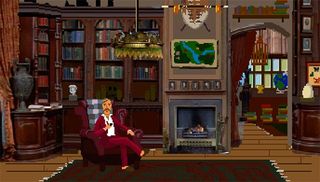
The developers of Curious Expedition have had a heady winter. After their devlog landed on TigSource , the two-person team won a €50,000 grant from the German government to finish developing the game, an exploration roguelike inspired by pioneers and the fiction of Jules Verne. Riad Djemili and Johannes Kistmann then left their day jobs at Yager Development—where they worked on Spec Ops: The Line —to work full-time on Curious Expedition and bring it to retail.
The game's hook is undeniable: explorers will set out across a randomly generated continent in search of treasure and knowledge, and the slightest misstep will result in a dead or insane expedition party and a failed excursion. This is a game where Nikola Tesla might shoot an energy gun at a giant crab or a hired hand will go insane and steal precious supplies on his way out of camp.

What we didn't know before now is that Curious Expedition is being developed to be playable in-browsers through HTML5. It's an enormously risky move by Djemili and Kristmann, as it will force them to educate players that browser games don't have to be low quality, casual Flash games. According to Kristmann, “We just need to get players to take a look at the game; that will be our chance to convince them that it's an actual game and not one of those other abominations... Can we convince the hardcore players that browser games can be more than what they currently are?”
We caught up with the team on the afternoon after they began the process of incorporating their company, something that makes the whole thing "feel very real" to them. They discussed the dangers of setting a game in a time when colonialism and racism were common, and their decision to include equal numbers of male and female explorers.
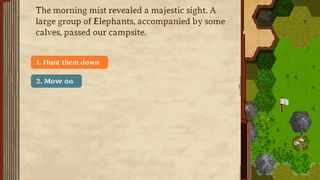
What has changed for Curious Expedition since we last talked ?
Riad Djemili: We want to release our first buyable alpha already in three or four months. Not just for financial reasons, but mainly to get feedback from the players as soon as possible. Its a pretty unusual game, so we're curious to find out what the players think.
Are you going through Steam Early Access or something similar?
PC Gamer Newsletter
Sign up to get the best content of the week, and great gaming deals, as picked by the editors.
RD: We're leaving that decision open. So far we're developing it as a browser game and will try to monetize it directly. A packaged steam build could be very possible though. It's still unusual to have core-games that are playable in a browser.
So the game will be using HTML5?
RD: Yes, so it runs without any plugins.
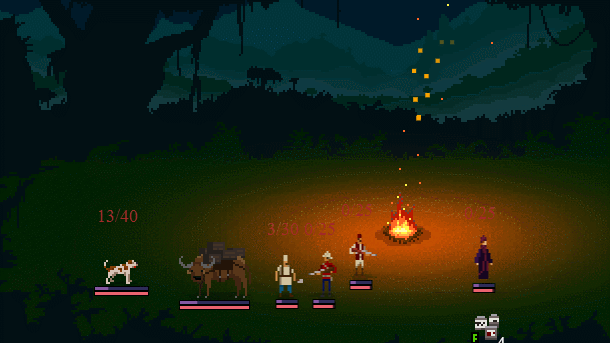
Johannes Kristmann: We kinda started with the tech just to do quick prototyping, but never really hit a border with it. So we just stuck with it. The advantages are very nice.
What are some of the advantages?
RD: We're curious to see how that facilitates new gameplay/sharing options, like putting Wikipedia links into the descriptions of characters or items. You could also directly post to Facebook from your highscore table. Or share your unique diary with your friends, just with a click, without them having to download anything.
JK: It's also so nice to just have access to it everywhere—I mean during production, we can have it on a webserver hidden somewhere and just access the latest version. Later, when playing the game, you'll be able to play at home, drive to work, and pick up your session at work over lunchbreak.
Sure. "Over lunch."
JK: [laughs] It'll definitely support those kind of quick sessions. I'm not saying it'll be easy to stop, but…
RD: Maybe we could even do crazy stuff like allowing you to embed a high score widget for your player account on your website.
The perception is that browser-based games are free, not very good, and not very serious. But that's not really fair because of the power that HTML5 has over old browser games built in Flash or Java. Have you guys heard any feedback like that? Or are you worried about that?
RD: Absolutely—mostly from ourselves. We're very aware that we're trying to break the mold here. I think this is going to change in the coming future, but it's definitely a risk to be on the forefront of this. We don't have a lot of other games that we can take as a blueprint in this regard.

JK: That's probably one of the biggest challenges—standing out from the browser game crowd and making people understand that we are a quite different browser game.
RD: That makes it exciting, but also scary honestly. I hope that our game is that good, that it can become a groundbreaker in that regard.
JK: It's hard because people are so used to not paying for browser games. The question is more if we can convince the hardcore players that browser games can be more than what they currently are.
RD: There is also the option of pre-packaging the game and making it playable as a regular, offline desktop game. I think we'll probably end up doing both. Kinda like Minecraft. You can play that online, but if you want to have that feeling of ownership and security, you can also download it and have it on your desktop. That's also something we'll learn from the alpha. As soon as the players get their hands on it, they can tell us how they prefer to play it.
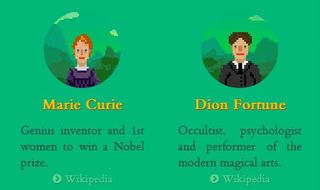
You recently spent a lot of time adding female characters during your “ FemCrunch .” Why do you think it is important to have equal representation in the game's characters?
JK: We knew we wanted to have female explorers, but never really spent more than a minimum effort on it. If you read the blog article you'll know the background. [Editor's note: After watching Anita Sarkeesian's video on female characters , Kristmann realized that Marie Curie, the only playable female character, was the token woman in a game full of men.] But once we started researching on female personalities of our time period, it was so easy to see why we needed them. There are so many great stories about female explorers I had never heard about, and now being able to put them into the game and potentially make more people aware of those women is a great opportunity for us. Also, when playing the game now with the diverse cast, it just feels so good to have all those characters.
RD: I think you always have responsibility as a creator, in general, to think about what values and messages you're putting out there. Especially since we're in a semi-realistic setting. So we take that seriously. In the way women are portrayed and also how the native people are portrayed. That doesn't mean that we're force-spooning a certain message though, just that we're conscious about what we put in the game and what we don't.
There are some very ugly currents of colonialism that run through this time period. It's a delicate place to work.
RD: Yes, absolutely. Again, not entirely risk-free from backlash from the community, but we think its a interesting scenario and valid for games to also touch on political-cultural issues.
JK: We also just cannot not have it in the game. If we'd leave that aspect out, we'd whitewash, which is a horrible thing to do.
RD: Yeah, the question would have been to do the setting at all. Not if we also put in the negative aspects.
JK: We're gonna step on toes no matter what, but maybe there is also a dialogue that can happen.
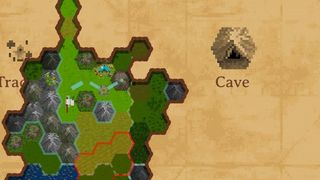
RD: We have a little experience on how that works with Spec Ops: The Line . That was already inspired by Heart of Darkness . Now we're doing it again with a smaller indie title.
JK: It's just surprising how extremely different the reactions to our game can be. Some people do not see at all the racist subcontext, while others are immediately offended. There is a huge gap between how this time period is perceived, and that's where we potentially could initiate a reflective process in some players.
RD: We definitely believe that games can have a cultural context.
Most Popular






